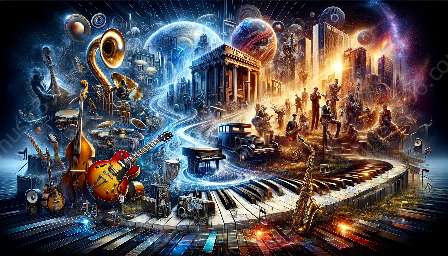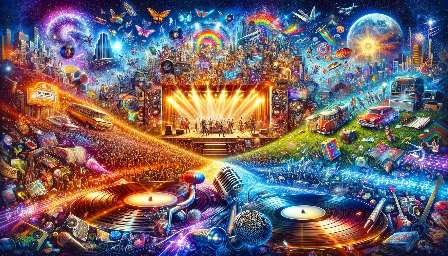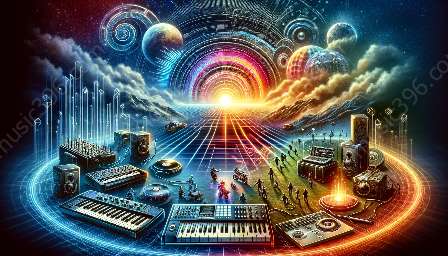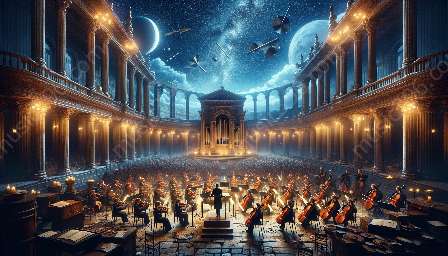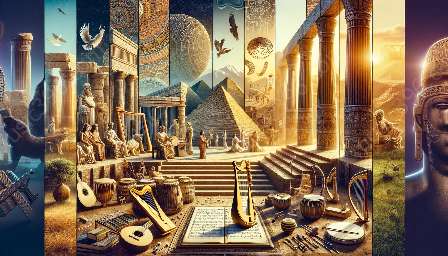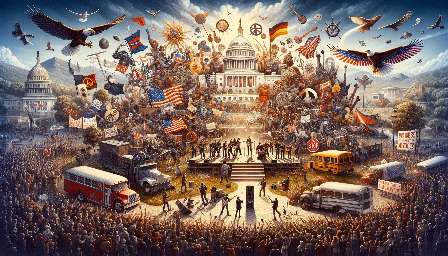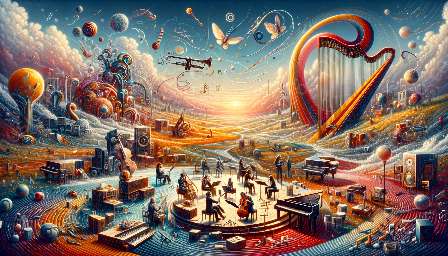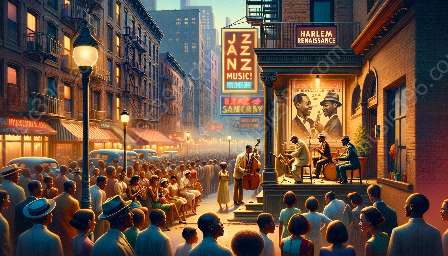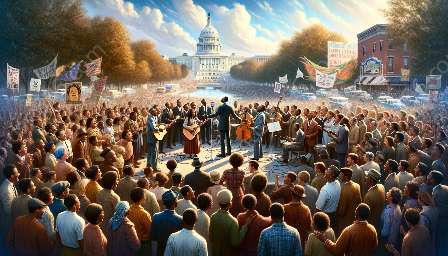Introduction
Music theory has undergone significant transformation in the digital age, reflecting the advancements in technology and the changing landscape of the music industry. This topic cluster explores the impact of the digital age on music theory, drawing historical connections to the development of music theory and its relationship with the evolution of music as an art form.
Digital Age and Music Theory
The digital age has revolutionized the way music is created, produced, distributed, and consumed. With the advent of digital audio workstations, virtual instruments, and innovative recording techniques, musicians and composers have access to a myriad of tools that have reshaped the music-making process. This has had a profound impact on music theory, as it now encompasses the study of electronic music, computer-generated compositions, and the integration of technology in musical expression.
Furthermore, the digital age has facilitated new modes of collaboration and experimentation in music composition, leading to the emergence of novel theoretical concepts and approaches. As a result, music theory has expanded to accommodate the diverse forms of musical expression that have emerged in the digital landscape, giving rise to interdisciplinary studies that bridge music, technology, and multimedia arts.
The Evolution of Music Theory
To understand the impact of the digital age on music theory, it is essential to trace the historical development of music theory itself. The origins of music theory can be found in ancient civilizations, where scholars and philosophers speculated on the fundamental principles of music, such as rhythm, harmony, and melody. Over time, music theory evolved in tandem with the development of musical instruments, notation systems, and compositional techniques.
During the medieval and Renaissance periods, music theory became intertwined with religious and philosophical ideologies, leading to the codification of musical practices and the emergence of treatises on counterpoint, harmony, and modes. The Baroque and Classical eras witnessed the refinement of music theory, with composers such as Johann Sebastian Bach and Ludwig van Beethoven contributing to the establishment of theoretical frameworks that continue to influence musical education and analysis.
In the 19th and 20th centuries, the expansion of music theory encompassed diverse styles and genres, including romanticism, impressionism, and the avant-garde, reflecting the changing aesthetics and cultural dynamics of the time. This historical trajectory demonstrates the adaptability of music theory in accommodating new musical languages and forms, laying the groundwork for its evolution in the digital age.
History of Music and Its Influence on Theory
The history of music is intertwined with the development of music theory, as theoretical concepts often emerge in response to innovative musical practices and creative expressions. From the chants of the medieval era to the complex polyphony of the Renaissance, and from the symphonic masterpieces of the Romantic period to the experimentation with electronic sounds in the 20th century, music history has continually shaped the theoretical understanding of music.
Furthermore, the historical context of music reflects the social, political, and technological forces that influence the evolution of musical styles and theoretical paradigms. For instance, the industrial revolution and the subsequent advancements in audio technology facilitated the recording and dissemination of music, prompting new theoretical inquiries into the impact of reproduction and mediation on musical experience.
As music transcended geographical boundaries and cultural paradigms, the study of ethnomusicology emerged, expanding the scope of music theory to encompass the diverse musical traditions and practices across the globe. This historical perspective underscores the interconnectedness of music theory with the dynamic tapestry of music history, highlighting the pivotal role of historical context in shaping theoretical discourse.
The Future of Music in the Digital Age
Looking ahead, the digital age continues to redefine the landscape of music creation, consumption, and scholarship. As technologies such as artificial intelligence, virtual reality, and interactive multimedia continue to evolve, music theory is poised to engage with new horizons of creativity and innovation. The fusion of traditional musical principles with cutting-edge digital tools offers unprecedented opportunities for interdisciplinary collaborations and boundary-pushing artistic endeavors.
Moreover, the digital age has facilitated the democratization of music production and distribution, allowing aspiring musicians and independent artists to reach global audiences and experiment with diverse musical idioms. This democratization of access has significant implications for music theory, as it necessitates a re-examination of canonical perspectives and an embrace of the plurality of musical expressions emerging from the digital sphere.
In conclusion, the digital age has ushered in a transformative era for music theory, challenging traditional paradigms and opening new avenues for creative exploration. By contextualizing this transformation within the rich tapestry of music history and theory, we gain insights into the enduring relevance and adaptability of music theory in the face of technological innovation and cultural evolution.






